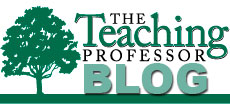Despite the tremendous growth of online education programs, student retention for online courses remains problematic. The attrition rate from online universities is often cited as 20% to 50% (Diaz, 2002). Studies also reveal that attrition from online programs can be as high as 70% to 80% (Dagger, Wade & Conlan, 2004).
Read more ›CURRENT ARTICLE • December 07
OTHER RECENT ARTICLES
There is a landfill of studies—more than 3,000 articles and 600 books. If you Google "learning styles" you will get 9.7 million hits in 0.16 seconds. "Learning styles workshops" produces 7.8 million hits and even “critiques of learning styles” garners 460,000 items. By the numbers of instruments, handbooks, and workshops advertised online, learning styles must be a sizable industry. But after diving into the pile, my mind was full of grit and cynicism. A zealous quest has created claims and theories so bad they aren’t even wrong. There had to be something useful in all this effort or despair would settle over me like so much dust.
Read More ›I’m betting that many of you are in the midst of grading a large stack of papers, projects or other final assignments. Too often these end-of-course pieces of work don’t live up to our expectations or students’ potential. It’s easy for us (especially the elders among us) to bemoan the fact that students aren’t what they used to be. It’s better to use our discontent to consider whether our course assignments are effectively accomplishing our course goals.
Read More › Teaching philosophy statements are now prepared for a variety of reasons: as part of a job application process; to be included in a promotion and tenure dossier; for a teaching award; or to foster reflection about how and why you teach. Regardless of purpose, the goal ought to be preparation of statements that reveal those beliefs and practices characteristic of an individual teacher. Writing teaching philosophy statements that accurately describe the instructional self isn’t easy, given that so many of us begin teaching careers with little training and continue them with episodic professional development. A set of resources can do much to assist the process and an impressive collection appears in the article referenced below.
Teaching philosophy statements are now prepared for a variety of reasons: as part of a job application process; to be included in a promotion and tenure dossier; for a teaching award; or to foster reflection about how and why you teach. Regardless of purpose, the goal ought to be preparation of statements that reveal those beliefs and practices characteristic of an individual teacher. Writing teaching philosophy statements that accurately describe the instructional self isn’t easy, given that so many of us begin teaching careers with little training and continue them with episodic professional development. A set of resources can do much to assist the process and an impressive collection appears in the article referenced below.
Earlier this year, we kicked off the semester with a faculty development workshop on academic customer service. Academic customer service is a hot and contentious topic on many college campuses, with faculty often reeling at the suggestion that students are customers (and therefore “always right”) or that education is a product intended for consumption. The feedback from our session in August was prickly and some of the comments demonstrated that we were in worse shape than I imagined.
Read More ›In the October 3rd issue of Faculty Focus, Maryellen Weimer underscores the idea that faculty need to take care of their instructional health and recognize the importance of emotional rejuvenation. She ends the post by asking readers: What are some things you do when you feel your teaching may be growing "tired?”
Read More ›The presence of Teaching Assistants (TAs) in a college course benefits both instructor and students. An assistant's responsibilities typically include grading, troubleshooting, and fielding student questions, and their role is evolving to meet the needs of the online classroom.
Read More ›Academic Partnerships and Instructure, Creator of Canvas, Form Strategic Partnership to Empower the Next Generation of Online Learning at Leading Universities
Canvas, the modern learning management system used by 275 institutions, is now offered
to Academic Partnerships’ partner universities free of charge
 At most colleges, courses are starting to wind down and that means it’s course evaluation time. It’s an activity not always eagerly anticipated by faculty, largely because of those ambiguous comments students write. Just what are they trying to say?
At most colleges, courses are starting to wind down and that means it’s course evaluation time. It’s an activity not always eagerly anticipated by faculty, largely because of those ambiguous comments students write. Just what are they trying to say?
I was inspired by Maryellen Weimer’s article on “Teaching Metacognition to Improve Student Learning” and the accompanying article by Kimberly Tanner on “Promoting Student Metacognition.”
Read More ›




